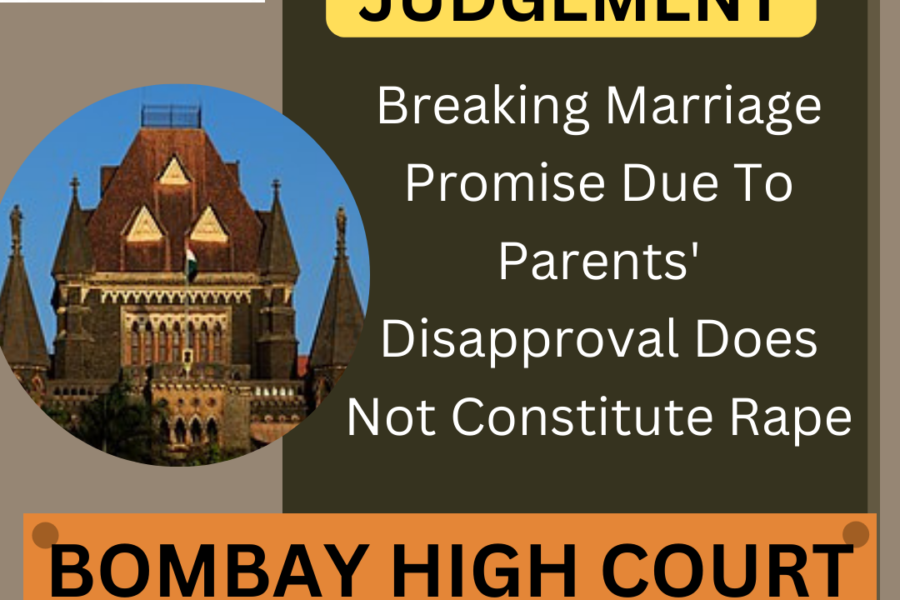Gaurav Wankhede vs State of Maharashtra & Anr
According to a recent ruling by the Bombay High Court, if a guy had sexual relations with a woman after making a vow to marry her and then broke that pledge because his parents disapproved, it wouldn’t be considered rape.
As a result, after stating that the rape suspect was prepared to wed his girlfriend but later withdrew this commitment due to his parent’s opposition to the union, Nagpur bench judge MW Chandwani cleared the accused.
“Merely because he resiled from his promise to marry since his parents were not agreeable to their marriage, it cannot be said that the applicant committed the offence punishable under Section 375 (rape) of the Indian Penal Code (IPC),” the Court held in its January 30 order.
The Court opined that even if the allegations against the accused were taken at face value, it is not as if he had made a “false” promise of marriage.
“At the most, it is a case of non-fulfilment or a breach of promise on account of circumstances, which the applicant (accused) could not have foreseen or which were beyond his control as he was unable to marry the victim, despite having every intention to do so,” the judge stated.
The accused was prepared to marry the victim, but the court also noted that there were WhatsApp conversations showing that the victim had previously been unwilling to get married.
“The victim rejected the application and told the applicant that she would wed a different boy. The victim didn’t file the case until the applicant became engaged to another woman, the court noted.
The complainant woman and the accused were said to have entered into physical relations when they were in a relationship in 2019. Subsequently, the complainant came to know that the man was engaged to another woman and would be marrying her.
Subsequently, the complainant filed a complaint with the Nagpur police station. The accused told the police that his parents did not approve of the marriage even though he was prepared to wed the complainant when he was called in.
The woman who filed the complaint also went to see the man’s father, who insisted that he did not support the complainant’s son getting married.
After that, the Nagpur police filed a formal complaint (FIR) against the defendants in accordance with IPC Section 376(2)(n), which addresses rape.
The chargesheet was finally issued, and the accused eventually went before a sessions court to request his dismissal from the case.
He sought redress from the High Court after the sessions court denied his request to be discharged.
The chargesheet revealed to the High Court that the couple had multiple instances of having sex and that this was not solely due to a promise of marriage.
“She (the complainant) persistently pursued a connection for a significant amount of time, fully aware of the consequences of sexual indulgence. This does not lead one to conclude that sexual interactions were only ever initiated when marriage was promised. The judge went on, “There is a difference between keeping a false pledge and breaking one.
The Court came to the conclusion that there was no evidence of rape against the accused. Therefore, the High Court discharged the accused from the criminal case.
Adv Khanak Sharma


I value the personal connection they forge with patrons.
can i purchase lisinopril no prescription
A trusted partner in my healthcare journey.
They provide a global perspective on local health issues.
can i order generic cipro pills
They make prescription refills a breeze.
Their private consultation rooms are a great addition.
how to get lisinopril without prescription
Their global presence ensures prompt medication deliveries.
Everything what you want to know about pills.
generic cytotec pills
The gold standard for international pharmaceutical services.
Their international team is incredibly knowledgeable.
buy generic cytotec without a prescription
A touchstone of international pharmacy standards.